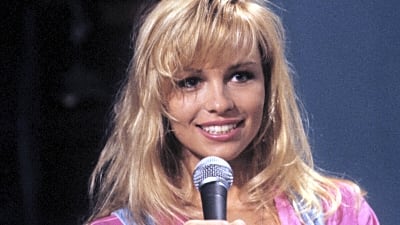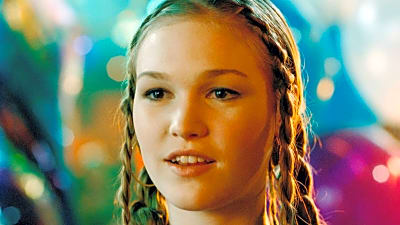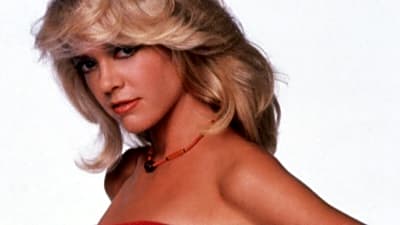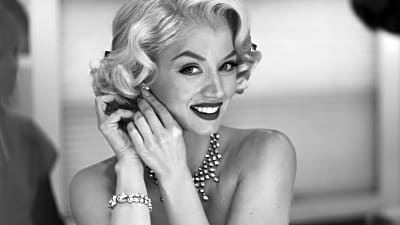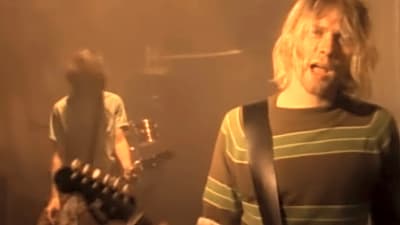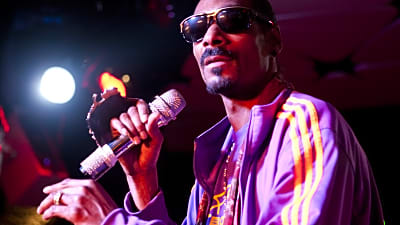
‘9-1-1’ star Ryan Guzman reflects on Eddie’s journey leading up to Season 9 in exclusive interview
Ryan Guzman returns as Eddie Diaz in season 9 of ABC’s 9-1-1, which premieres on October 9. New episodes will then air weekly on Thursdays and be available to stream the next day on Hulu.
Ryan Murphy, Brad Falchuk and Tim Minear reimagine the procedural drama with “9-1-1.” The series explores the high-pressure experiences of first responders — including police officers, firefighters and dispatchers — who are thrust into the most frightening, shocking and heart-stopping conditions. These emergency responders must try to balance saving those who are at their most vulnerable with solving the problems in their own lives. The show draws from the real lives of first responders who regularly face situations that are often unpredictable, intense and uplifting at the same time.
I spoke with the actor over Zoom on behalf of Yardbarker to discuss his most significant moments throughout the series, Eddie’s relationship with Christopher, what he wants to explore further when it comes to his character’s mental health arc, and so much more.

Aside from Bobby’s death and Chimney’s speech, what do you think contributed to Eddie deciding to stay?
Ryan Guzman: That's his family. I mean, blood aside, I think he really found what family meant when he went to the 118. We have people that are coming in from just different areas of life and walks of life, and showing him something that he's never seen while he's grown up. And I think that opened him up as an individual and allowed him to really find himself within the team. So I don't think it was a question in his mind that he didn't wanna come back, it was more so, how does he come back, and can he make sense of it with his son now finding a little bit more leisure in Texas?
Buck and Eddie’s kitchen fight was so heartbreaking to watch, but then he brought Christopher and Pepa home to cheer Buck up. I feel like that dynamic is so special to the show and both of your characters. What do you think is the significance there? What do you think it says about the family dynamic that these two have built, and how important they are in each other's lives?
I honestly think that it's also a great reflection of Mexican culture because Mexican culture is very open-door policy. It's like, come over at any moment, and we’ll cook for you, and that's exactly what that was. It was, you're going through tough times, there's nothing that food can't solve, and some family can't solve. So I do believe that there's a great opportunity to highlight our culture in that. That being said, Buck’s character has already been integral into Eddie’s and I think at that moment, Eddie was going through so much of repression as far as not being there when Cap passed, and I don't know if he's fully dealt with that just yet, but he could see that his friend was hurting and at that moment, he didn't know how to handle himself within the kitchen scene. So he was still very vulnerable, and then that was an explosive moment on Buck, which he felt sorry for, and later on, ended up wanting to be like, all right, let's mend this. This wasn't towards you, this was towards the depressive state I was in and losing somebody very, again, integral to Eddie’s life.

We've seen Eddie struggle with loss and grief previously, but what was the most important thing about how you wanted his grief over Bobby, in particular, to be shown and presented to the audience, especially since he wasn't there? As an actor, did you prefer the fact that he wasn't there to experience and portray that individually, or do you wish he were there to be involved in that moment?
I wish he were there. Yeah, as an actor, I would have loved to showcase what Eddie had gone through, and we kind of really went by it quick, and we haven't delved into that too often. So yeah, that would have been a great opportunity, especially with over the past seasons, we've seen how Eddie’s handled the loss of Shannon and the loss of his comrades, and those were all something that really took from Eddie and this is just another version of that where someone he really fell into and really believed in and almost saw as like a father figure, essentially, now leaves this open gap in his heart. I mean, the show itself was incredible to watch, but yeah, I definitely, as an actor, was like, ‘Oh man, I wish I could have been in that and showcased Eddie a little bit more.’
That being said, I think how he continues after his passing is now doing something without feeling like he's going backwards, but doing something as if he's learned what he needs to learn from Cap and imparting that as much as he possibly can in his honor. So, not diving so much in a depressive state, we've seen that, we've seen his grief tear at Eddie’s fabric, but I don't think that would suit Bobby. Bobby was such a person of hope that his passing actually allows Eddie to grow and allows Eddie to really fall into who he's meant to become, which is another very big, important piece of this family dynamic in the 118.
If Eddie had been at the lab that day or even outside like Buck and Athena, how would you have wanted their last conversation to go if he had the chance to say goodbye to his Captain and, as you said, father figure?
I think it happened the way it should have between Athena and Bobby. Those are the people that needed to say goodbye to each other, aside from the family, and the way everybody else kind of found out through the comms, like Chimney just losing it, I think it would have been more of that, to be honest. Disbelief, and to watch somebody you love knowingly step into danger and then take their life for the sacrifice of others, is such a complex thing to take in. But it would have been a version of what everybody else was going through, whatever that looked like; maybe it was best that Eddie was in his own world and had to be dealing with other things.

Moving on to his time in Texas, can you talk to me about that moment when Eddie told, rather than asked, Christopher that he was moving back in with him? He clearly saw a younger version of himself when his son said that he hates chess and only does it for his grandfather. Then, we see that conversation with Eddie and his mother later, when he compares the situation to his own childhood and ballroom dancing.
Yeah, I'll take this in as a father first. I've seen so much of myself within my children, and there's so much opportunity within that to understand yourself and gain another version of self-love through that, and that's what I thought Eddie was going through at the same time. He was trying to be the best version of a father he knew, and you can only pull from what you know and at that point in time, he didn't know that his son was going through the same things as he was, and he was thinking, ‘Well, maybe if I step back and just allow people that raised me, that clearly love me to help out and just be a good enough father, that'll do good things for my son.’ But within that, he didn't realize how needed he was as Christopher’s father to step in and be like, ‘Let's kill this generational curse.’
And with that opportunity that was presented when Christopher says, “I hate chess, I hate this, I'm just doing it to make them happy,” he sees himself in that moment, and he goes, “Oh my God,” aha, click. There's a light bulb moment, now I know what I'm supposed to be doing. I'm not supposed to be just a friend to my son. I'm not supposed to be just a happy-go-lucky guy that makes everybody else happy. I need to be the role I've been destined to be, which is father first, and that was a great example of it.
One of the other moments that stuck out to me is when he gets caught lying about his job, but instead of this setting Eddie’s relationship with Christopher back a hundred steps, like he probably feared, his son forgives him and still wants him to stick around. Why was that such an important moment to include in their healing journey?
That highlights the connection they have, and I think this is a beautiful representation of what father and son should have, or even just child and adult should have, is as much as the adult is wanting to teach, help, and guide the child, the child has so much to offer as far as teaching, helping, and guiding us. So when he flipped it back on Eddie, and says, “No, it's okay, I just want you here,” it kind of wipes all of that away from Eddie, and it's like, ‘Oh, he just invited me to be a better version of myself. Wow, I got that from a great person, and that just happens to be my son.’

Looking back, is there a scene that seemed small at the time when you were filming it, but ended up being important in a later season or time? Maybe a detail, a line, or anything at all that seemed insignificant, but since then, the meaning or your personal view of it has changed?
There's so much that's gone [on] in this show, it's kind of hard to pinpoint just one, but I always kind of fall back to just all the times Eddie has walked his son to school, and within those moments, is sharing with his son like, “Hey, I'll always be there. I'll always be there.” And to see it kind of come full circle now, where Christopher is now saying, “Hey, I'll always be there.” It's a great thing to witness and be a part of.
I know there's a script, I know there are notes and directions you get from the directors or writers, but are there any scenes, dialogue, or details that you have been able to add in because you know Eddie and what he would be thinking or feeling in that moment? Does one come to mind that you're really happy was included?
Well, so the flashback in the kitchen scene, specifically when I'm talking to Oliver’s character, Buck, saying, “You have no clue what it felt like to be stuck at home, wanting to cry, but really not being able to because it scared my son,” we didn't have a flashback for that. I called up Tim, the showrunner, and said, “Hey, I think the audience is owed some kind of scene where they're seeing Eddie just really holding it back or really going through it,” and to his credit, he goes, “Done, let's do it.” So I'm glad that we filmed that. That way, we kind of imparted to the audience, like, this was no easy act. This is not just him coming back from Texas to LA and everything's gonna be fine. No, he's still struggling, and it was very tough for him, and to hold in something because you don't wanna scare somebody close to you is insane to me.
I've noticed that a lot of times when Eddie is going to cry, he holds back. Is that a purposeful thing you do for the character? I think it's so fitting.
Absolutely. Yeah, it's very purposeful, and it falls in line with Eddie, and I've actually pulled some from my own experience as well, because in the moment, I think Eddie’s thinking, 'I don't wanna make this about me, so let's not cry.' I don't need you to feel sorry for me; let’s focus on what needs to be focused on, and then, when the time comes, maybe we can share each other's feelings. But at this moment, I just wanna be there for others, and I want to do the right thing.

Eddie is such an excellent character to portray mental health struggles with. I'm a firm believer that that's something that needs to be represented in media, especially on television, where we're getting to know these characters on a deeper level. One of my favorite parts is “Jello Body.” I know how silly that sounds, but I love that he was able to take something from his own personal struggles and give it to someone else in a moment when they needed it. I feel like it's one of those things where people don't realize what you go through because they don't see it, but when the time comes, you’re like, “Well, I experienced this before, so let me pass this on to you now.” Why do you think it was necessary to have a scene like that? I feel like the balance between that and the moment when he breaks down is so important.
That's part of the genius of Tim Minear and integrating these little tidbits from Eddie’s arc. I think it also hits in the way it did because it isn't so extreme, there isn't crying or anything going on, and there isn't a deep sense of connection between the two characters. It is something very simple and has levity to it, and I think because it's so simplistic and it holds such complexity with that simplicity, it was able to be delivered to the person we were helping and then allow them to feel seen and heard and kind of just relax in the moment. I mean, also, the scene itself was a little bit ridiculous, too. So it's like, we also have to keep in context what we're dealing with, but to really just stay focused and to have that one-on-one, and for that person to allow Eddie to help them out via his struggles or what he's learned through his struggles, at least, was beautiful. Yeah, so I'm glad you said something about that.
Going back to when Eddie completely breaks down and Christopher calls Buck to come help, that was a standout for your character and an amazing performance from you. What has it been like for you to do those really powerful, vulnerable scenes and then get to see the response from fans about how they have felt seen through your character or how it’s helped them with their own mental health journey?
Overwhelming. The response is overwhelming. I just try to live in the truth of the character, and I have a well, a deep, deep well of my own struggles that I've overcome and worked through and understood over time that I pull from within those moments. As soon as I'm tapped in, I actually was just asked this question not too recently, like, 'How do you cry on command? How do you get to that moment?' And to be honest, I never have to really search too far from it. In fact, what I have to do is usually, I'll cry within the scene, but as soon as I'm done with that, I have to go joke with somebody. I have to go have a good time in between the takes so I can forget what I just did, and then when I get back into it, I can hit that well again.
But as far as getting into that scene and allowing myself to fully express, maybe something I've not been able to express in my day-to-day life, in my personal life, it's therapy to me. Again, connecting with the truth of the character, giving it full intention of this is a release of repressed emotions that maybe Eddie doesn't even understand at the moment, but it just has to come out, and through that, it can be a conduit for the audience to see themselves and the way it's connected, I'm just grateful. Again, going in parallel with my own journey in my personal life, it's been amazing to see the outreach of individuals gaining some sense of self through the character and what they've learned. So I'm just grateful, and I love that Eddie’s able to be helpful in that path.

I imagine it really is a gift to be able to grow with a character for so many years of your life, over so many seasons. Obviously, you might not relate to every plot, but I'm sure you find something in every storyline where you're like, ‘This is art imitating life.’ How special is it to play a character that's not so different from yourself, one that you can actually connect with?
Absolutely, there's actually scary moments where it's very close to who I am, and I'm like, ‘Did they bug my trailer? What's going on here? How did they know so much about me?’ I called Tim, like, “Did you just know that I was going through this at this moment?” But yes, again, I just live in gratitude all the time. I think God works in special ways, and this character happens to be one of those beautiful gifts.
We've tackled a lot with Eddie, from toxic masculinity and repressing his emotions to the need for self-love, which is such a big one for so many people. Is there anything you would have liked to explore further if you had the time, or something you haven't touched on yet that you hope to portray in the future?
I think we've touched on this a little bit, but specifically with connection, what true connection is, because I think that shifts the dynamic of what mental health is. For me personally, in my own experience, it was a lack of connection, and I didn't know how to resolve that issue. So we've done it a little bit here and there with 9-1-1, but really amplifying the idea that it takes a village at the end of the day, and a good, healthy village to pull from, to really pick yourself up and find that self-love and really understand who you want to be, let alone are at that moment. So I think the next process again is, we've seen Eddie find a little bit of self-love after the priest told him, “Why don't you give something to yourself?”
And he does that big old dance number and has a great time with it. Then he embraces himself a little bit more, and I think I've been more so playing with that this season. I think the next thing is finding the love interest and really being able to give to that woman in a way where he's coming from a fulfilled place rather than like, let me fulfill. But that connection, he's found it in his son, he's found it with his family members now, he's stood up to his mom, he's stood up to his dad. These are all key elements into the growth of Eddie. Now the next thing is, I've loved myself, now let me share that love with another.

When it comes to the loss of Shannon, what do you think is the power of showing the effects of that unresolved trauma between them and the fact that he really didn't let himself fully feel that pain until so many years later?
Well, that's the power of repression. You tuck it away for so long, you almost forget about it until something happens to poke it, and then you go, it's like this little balloon that blew up out of nowhere, and that's what we saw with Shannon. It was, again, so overwhelming for him, and what he knew was that he came from war and he's dealt with death before, and what he did then is what he's gonna do as soon as Shannon passes, like, I'm gonna tuck this away, I gotta keep on pushing. The job needs me, my kid needs me; they don't need to see me weak. And then, years later, he bumps into somebody at a store that reminds him of Shannon, and there goes the little pop in the balloon. Like, okay, all these repressed memories start coming back, all this ‘what if’ situation comes back, and he starts playing games in his own head, games that obviously affect so many others, especially his son.
So, it's just highlighting again what repressive tendencies will lead to, and it was another opportunity for the character to see the damage of that. Moving forward, I think that what he learned is that Shannon was more ideological. She was more of a person that he wrapped his head around in a kind of fantastical way. It was a first love, it was first wife, first kid, all of these firsts, and he kind of easily forgot that when he got back together with her, she was like, “No, I don't wanna get back together with you.”
He remembered the good memories.
Exactly. So this was an aha moment, an awakening to Eddie at this moment, and he said, ’You know what, okay, I understand now. Maybe I should step away from the dating scene for now and just focus on me and focus on my son,’ and that's what he did. He went to Texas; he did that. He came back to the 118, and now he's focusing on his 118 family, and who knows what happens for the future.

“Eddie Begins” is one of my favorite episodes. I love how perfectly it demonstrated his growth, not only as a father, but as a person and human being. Which moment in that episode was the most meaningful for you to bring to life for the character and to show on the screen for audiences?
It was dense with so much because you get to, like you said, get a real good insight on Eddie really quick. The fact that he's going through literal firefights to try and save individuals, he's gotten shot a couple of times, and he's just pushing past the pain to try and pull people from their bootstraps and save as many as he can. And at the very end of that firefight, he's run out of ammo, he has no hope, and the first thing he thinks about? His son. So it's just like, okay, we know who Eddie is now, we know what means something to him. Oh man, so much happened, it'd be hard to really pick out one specific thing, but I would say his perseverance shines through throughout that, and the power that is his son. It's like literally the sun in the universe to him. It's like the thing that's guiding light, the star to him that gives him all the energy he's needed. It's the sun to Superman, and that's his driving force, which is, again, timely at the same time with what's just happened because now he's kind of understood that maybe he's put his son on a pedestal too long and that he actually needs to be finding his own inner light.
But yeah, “Eddie Begins” was just a fantastic opportunity. I was so grateful for Bob Williams to direct that and give everything he possibly could to that. Another key element to that was, I had my cousin, who has served, be the tech for our show, that whole episode, and he rewrote everything. He just fine-tuned every little [thing] from the costumes to the way we fight to everything. His name is Randy Hudson. He deserves all the credit in the world. But I hadn't really connected with him like that ever, and he was going back and forth to Afghanistan and different areas of the world, still going into firefights. So to see him interact with me and share his wisdom and just be so calm the whole way through, it's the opposite of what you think for PTSD or any kind of traumatic issues. He was my guiding light the whole time. So the whole thing, the whole “Eddie Begins” episode, gave me so much. I'm just so grateful for it.
I feel like we've gotten to see a lot of different versions of Eddie throughout the course of the show, so can you give me a teaser or preview of this upcoming version in season 9?
Well, I can start with this. Before the season started, I hit up Tim Minear, and I said, “I want more responsibility this year,” and that's exactly what he did. So he gave me a new role within Eddie.
More must-reads:
- 20 famous stars who couldn't get cast on 'SNL'
- The worst final episodes of otherwise beloved TV series
- The 25 most iconic vehicles from TV and movies
- 25 famous film stars who made the transition to television
Breaking News
Trending in Entertainment
Customize Your Newsletter
 +
+
Get the latest news and rumors, customized to your favorite sports and teams. Emailed daily. Always free!
